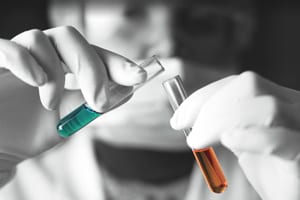
The Tufts Center for the Study of Drug Development has revised its often-cited estimate of the cost of bringing a new drug to market to from $1.04bn to $2.56bn.
Industry-backed Tufts CSDD said the dramatic increase over its earlier 2003 estimate comes “despite ongoing efforts across the full spectrum of pharmaceutical and biotech companies to rein in growing R&D costs.”
The new figure is made up of almost $1.4bn in out of pocket costs, while there are additional time costs – the expected returns that investors forego while a drug is in development – of around $1.1bn. If post-approval costs such as testing of new indications and formulations and safety monitoring is taken into account, the figure swells to $2.87bn, claims Tufts CSDD.
According to Joseph DiMasi, director of economic analysis at Tufts CSDD, rising drug development costs have been driven mainly by increases in out-of-pocket costs for individual drugs and higher failure rates for drugs tested in human subjects.
The new figure has already drawn fire from medical charity Médecins Sans Frontières (MSF) which issued a statement saying: “if you believe that, you probably also believe the earth is flat”.
“GlaxoSmithKline’s CEO Andrew Witty himself says the figure of a billion dollars to develop a drug is a myth,” it continues, adding: “this is used by the industry to justify exorbitant prices.”
The medical charity claims that new drugs can be developed for as little as $50m, or up to $186m if the cost of failed programmes is also taken into account, citing figures from the Drugs for Neglected Diseases initiative (DNDi).
“Today nearly half of R&D spending is paid for by the taxpayer or by philanthropy, and that figure continues to rise as governments do more and more to make up for the pharmaceutical industry’s R&D shortcomings,” says Rohit Malpani, MSF’s director of policy and analysis.
The earlier $1.4bn estimate has also been questioned by the CEO of the National Institute for Health and Care Excellence (NICE), Sir Andrew Dillon, in the wake of the agency’s decision not to recommend the Pfizer drug Xalkori (crizotinib) for use in the treatment of advanced non-small-cell lung cancer (NSCLC) due to its high cost.
The Tuft CSDD analysis was based on information provided by 10 pharmaceutical companies on 106 randomly selected drugs that were first tested in human subjects anywhere in the world between 1995 and 2007.




